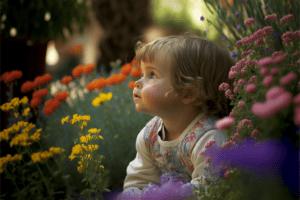A Critical Look at the Dandelion-Orchid Dichotomy: Labels That Shape Lives
Introduction
Could calling your child an ‘orchid’ or ‘dandelion’ do lasting harm? While the dandelion-orchid dichotomy aims to explain why children respond differently to their environments, it risks creating limiting labels that shape their self-beliefs and behavior.
Understanding children’s temperaments is essential—but labeling them as inherently “resilient” or “sensitive” may do more harm than good. These labels can create unrealistic expectations, reinforce social biases, and confine a child’s sense of self.
- Why can labeling children as “dandelions” or “orchids” harm their development?
- How do labels influence social expectations and self-beliefs?
- What are practical, research-based strategies to nurture children without fixed categories?
The Problem with Labeling Children
What Is the Dandelion-Orchid Dichotomy?
The dandelion-orchid dichotomy describes how children respond differently to their environments.
- Dandelion children are thought to be resilient, thriving in most conditions.
- Orchid children are considered highly sensitive, flourishing in nurturing settings but struggling under stress.
Why it matters:
These terms simplify complex traits into rigid categories. While helpful as a broad concept, labeling risks confining children to expectations that may not reflect their full potential.
How Labels Shape Lives
- Self-Fulfilling Prophecy
- Children internalize labels, shaping their behavior to fit societal or parental expectations.
- A child labeled as “sensitive” may avoid challenges, assuming they lack resilience.
Example: An “orchid” child might refuse to participate in group sports, believing they can’t handle competition.
- Social Expectations
- Peers, teachers, and even parents unconsciously reinforce these labels.
- A “dandelion” child might be expected to handle stress independently, receiving less emotional support when needed.
- Reduced Flexibility
- Sensitivity and resilience are fluid traits that develop over time. Labeling creates fixed perceptions, stifling personal growth.
- Instead of “teaching to the child,” caregivers may inadvertently “teach to the label.”
Alternatives to Labels
- Encourage a Growth Mindset
Focus on traits as skills that develop over time rather than fixed attributes.
- Frame challenges as opportunities to grow.
- Avoid statements like “You’re just not good at handling stress.”
- Tailor Support to Needs
Observe children’s behavior and provide adaptive responses based on specific situations.
- Highly sensitive children might need structured environments for certain tasks.
- Resilient children benefit from emotional acknowledgment to balance their independence.
- Promote Self-Awareness
Teach children to identify their emotions and strengths without imposing external definitions.
- Use tools like emotion wheels to help children articulate feelings.
- Encourage journaling or reflective practices for older children.
Actionable Tips for Parents and Educators
- Avoid Defining Words: Replace “You’re sensitive” with “You responded strongly to this situation.”
- Use Observational Language: Focus on behaviors rather than attributes.
- Model Resilience and Sensitivity: Share your own moments of growth or vulnerability to demonstrate balance.
- Seek Professional Guidance: Work with child psychologists to address specific concerns instead of relying on broad labels.
Conclusion
The dandelion-orchid dichotomy provides a lens to understand sensitivity and resilience, but its unintended consequences—rigid labels, reinforced social expectations, and stunted growth—cannot be ignored.
Instead of categorizing children, we should nurture their unique needs, focusing on growth, adaptability, and self-awareness. Every child has the potential to thrive in their own way, and it’s our responsibility to create environments that support this journey.
Let’s move beyond labels and foster the individuality of every child.


